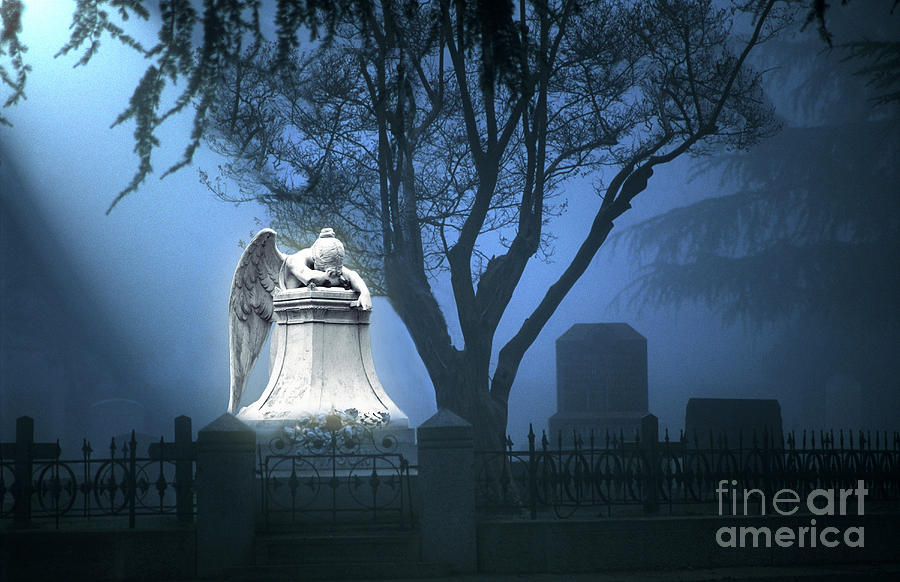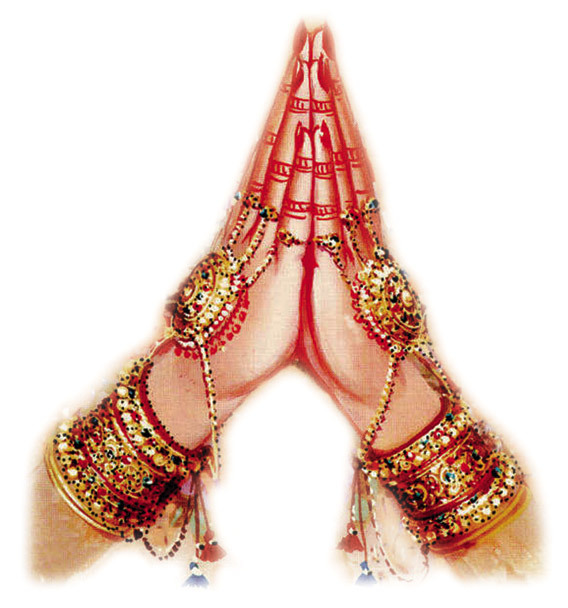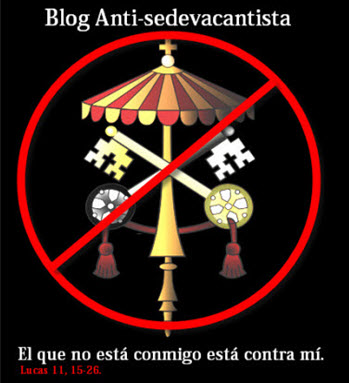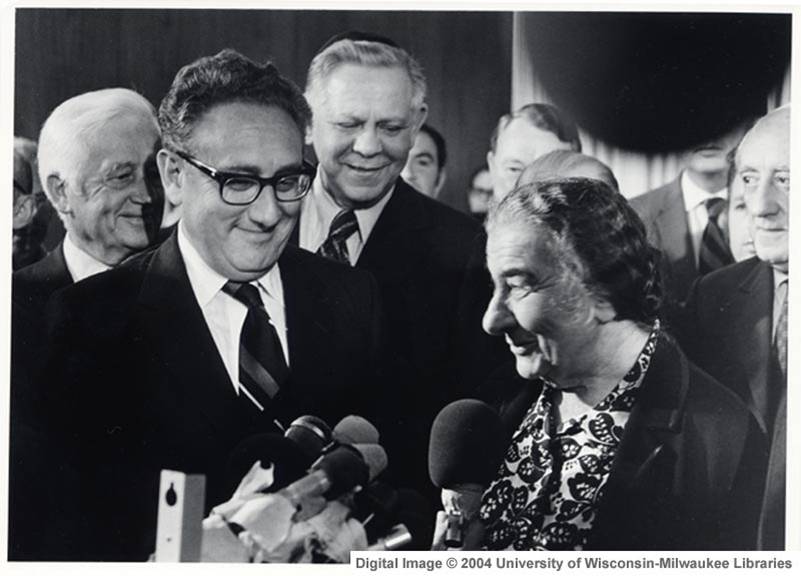REVISIONS ADOPTED BY THE E. G. WHITE TRUSTEES NOVEMBER 19, 1956, AND DECEMBER 6, 1979
PAGE 50. TITLES.--IN A PASSAGE WHICH IS INCLUDED IN THE ROMAN CATHOLIC CANON LAW, OR CORPUS JURIS CANONICI, POPE INNOCENT III DECLARES THAT THE ROMAN PONTIFF IS "THE VICEGERENT UPON EARTH, NOT OF A MERE MAN, BUT OF VERY GOD;" AND IN A GLOSS ON THE PASSAGE IT IS EXPLAINED THAT THIS IS BECAUSE HE IS THE VICEGERENT OF CHRIST, WHO IS "VERY GOD AND VERY MAN." SEE DECRETALES DOMINI GREGORII PAPAE IX (DECRETALS OF THE LORD POPE GREGORY IX), LIBER 1, DE TRANSLATIONE EPISCOPORUM, (ON THE TRANSFERENCE OF BISHOPS), TITLE 7, CH. 3; CORPUS JURIS CANONICI (2D LEIPZIG ED., 1881), COL. 99; (PARIS, 1612), TOM. 2, DECRETALES, COL. 205. THE DOCUMENTS WHICH FORMED THE DECRETALS WERE GATHERED BY GRATIAN, WHO WAS TEACHING AT THE UNIVERSITY OF BOLOGNA ABOUT THE YEAR 1140. HIS WORK WAS ADDED TO AND RE-EDITED BY POPE GREGORY IX IN AN EDITION ISSUED IN 1234. OTHER DOCUMENTS APPEARED IN SUCCEEDING YEARS FROM TIME TO TIME INCLUDING THE EXTRAVAGANTES, ADDED TOWARD THE CLOSE OF THE FIFTEENTH CENTURY, ALL OF THESE, WITH GRATIAN'S DECRETUM, WERE PUBLISHED AS THE CORPUS JURIS CANONICI IN 1582. POPE PIUS X AUTHORIZED THE CODIFICATION IN CANON LAW IN 1904, AND THE RESULTING CODE BECAME EFFECTIVE IN 1918.
FOR THE TITLE "LORD GOD THE POPE" SEE A GLOSS ON THE EXTRAVAGANTES OF POPE JOHN XXII, TITLE 14, CH. 4, DECLARAMUS. IN AN ANTWERP EDITION OF THE EXTRAVAGANTES, DATED 1584, THE WORDS "DOMINUM DEUM NOSTRUM PAPAM" ("OUR LORD GOD THE POPE") OCCUR IN COLUMN 153. IN A PARIS EDITION, DATED 1612, THEY OCCUR IN COLUMN 140. IN SEVERAL EDITIONS PUBLISHED SINCE 1612 THE WORD "DEUM" ("GOD") HAS BEEN OMITTED.
PAGE 50. INFALLIBILITY.--ON THE DOCTRINE OF INFALLIBILITY AS SET FORTH AT THE VATICAN COUNCIL OF 1870-71, SEE PHILIP SCHAFF, THE CREEDS OF CHRISTENDOM, VOL. 2, DOGMATIC DECREES OF THE VATICAN COUNCIL, PP. 234-271, WHERE BOTH THE LATIN AND THE ENGLISH TEXTS ARE GIVEN. FOR DISCUSSION SEE, FOR THE ROMAN CATHOLIC VIEW, THE CATHOLIC ENCYCLOPEDIA, VOL. 7, ART. "INFALLIBILITY," BY PATRICK J. TONER, P. 790 FF.; JAMES CARDINAL GIBBONS, THE FAITH OF OUR FATHERS (BALTIMORE: JOHN MURPHY COMPANY, 110TH ED., 1917), CHS. 7, 11. FOR ROMAN CATHOLIC OPPOSITION TO THE DOCTRINE OF PAPAL INFALLIBILITY, SEE JOHANN JOSEPH IGNAZ VON DOLLINGER (PSEUDONYM "JANUS") THE POPE AND THE COUNCIL (NEW YORK: CHARLES SCRIBNER'S SONS, 1869); AND W.J. SPARROW SIMPSON, ROMAN CATHOLIC OPPOSITION TO PAPAL INFALLIBILITY (LONDON: JOHN MURRAY, 1909). FOR THE NON-ROMAN VIEW, SEE GEORGE SALMON, INFALLIBILITY OF THE CHURCH (LONDON: JOHN MURRAY, REV. ED., 1914).
PAGE 52. IMAGE WORSHIP.--"THE WORSHIP OF IMAGES . . . WAS ONE OF THOSE CORRUPTIONS OF CHRISTIANITY WHICH CREPT INTO THE CHURCH STEALTHILY AND ALMOST WITHOUT NOTICE OR OBSERVATION. THIS CORRUPTION DID NOT, LIKE OTHER HERESIES, DEVELOP ITSELF AT ONCE, FOR IN THAT CASE IT WOULD HAVE MET WITH DECIDED CENSURE AND REBUKE: BUT, MAKING ITS COMMENCEMENT UNDER A FAIR DISGUISE, SO GRADUALLY WAS ONE PRACTICE AFTER ANOTHER INTRODUCED IN CONNECTION WITH IT, THAT THE CHURCH HAD BECOME DEEPLY STEEPED IN PRACTICAL IDOLATRY, NOT ONLY WITHOUT ANY EFFICIENT OPPOSITION, BUT ALMOST WITHOUT ANY DECIDED REMONSTRANCE; AND WHEN AT LENGTH AN ENDEAVOR WAS MADE TO ROOT IT OUT, THE EVIL WAS FOUND TOO DEEPLY FIXED TO ADMIT OF REMOVAL. . . . IT MUST BE TRACED TO THE IDOLATROUS TENDENCY OF THE HUMAN HEART, AND ITS PROPENSITY TO SERVE THE CREATURE MORE THAN THE CREATOR. . . .
"IMAGES AND PICTURES WERE FIRST INTRODUCED INTO CHURCHES, NOT TO BE WORSHIPED, BUT EITHER IN THE PLACE OF BOOKS TO GIVE INSTRUCTION TO THOSE WHO COULD NOT READ, OR TO EXCITE DEVOTION IN THE MINDS OF OTHERS. HOW FAR THEY EVER ANSWERED SUCH A PURPOSE IS DOUBTFUL; BUT, EVEN GRANTING THAT THIS WAS THE CASE FOR A TIME, IT SOON CEASED TO BE SO, AND IT WAS FOUND THAT PICTURES AND IMAGES BROUGHT INTO CHURCHES DARKENED RATHER THAN ENLIGHTENED THE MINDS OF THE IGNORANT--DEGRADED RATHER THAN EXALTED THE DEVOTION OF THE WORSHIPER. SO THAT, HOWEVER THEY MIGHT HAVE BEEN INTENDED TO DIRECT MEN'S MINDS TO GOD, THEY ENDED IN TURNING THEM FROM HIM TO THE WORSHIP OF CREATED THINGS."--J. MENDHAM, THE SEVENTH GENERAL COUNCIL, THE SECOND OF NICAEA, INTRODUCTION, PAGES III-VI.
FOR A RECORD OF THE PROCEEDINGS AND DECISIONS OF THE SECOND COUNCIL OF NICAEA, A.D. 787, CALLED TO ESTABLISH THE WORSHIP OF IMAGES, SEE BARONIUS, ECCLESIASTICAL ANNALS, VOL. 9, PP. 391-407 (ANTWERP, 1612); J. MENDHAM, THE SEVENTH GENERAL COUNCIL, THE SECOND OF NICAEA; ED. STILLINGFLEET, DEFENSE OF THE DISCOURSE CONCERNING THE IDOLATRY PRACTICED IN THE CHURCH OF ROME (LONDON, 1686); A SELECT LIBRARY OF NICENE AND POST-NICENE FATHERS, 2D SERIES, VOL. 14, PP. 521-587 (NEW YORK, 1900); CHARLES J. HEFELE, A HISTORY OF THE COUNCILS OF THE CHURCH, FROM THE ORIGINAL DOCUMENTS, B. 18, CH. 1, SECS. 332, 333; CH. 2, SECS. 345-352 (T. AND T. CLARK ED., 1896), VOL. 5, PP. 260-304, 342-372.
PAGE 53. THE SUNDAY LAW OF CONSTANTINE.--THE LAW ISSUED BY THE EMPEROR CONSTANTINE ON THE SEVENTH OF MARCH, A.D. 321, REGARDING A DAY OF REST FROM LABOR, READS THUS:
"ALL JUDGES AND CITY PEOPLE AND THE CRAFTSMEN SHALL REST UPON THE VENERABLE DAY OF THE SUN. COUNTRY PEOPLE, HOWEVER, MAY FREELY ATTEND TO THE CULTIVATION OF THE FIELDS, BECAUSE IT FREQUENTLY HAPPENS THAT NO OTHER DAYS ARE BETTER ADAPTED FOR PLANTING THE GRAIN IN THE FURROWS OR THE VINES IN TRENCHES. SO THAT THE ADVANTAGE GIVEN BY HEAVENLY PROVIDENCE MAY NOT FOR THE OCCASION OF A SHORT TIME PERISH."--JOSEPH CULLEN AYER, A SOURCE BOOK FOR ANCIENT CHURCH HISTORY (NEW YORK: CHARLES SCRIBNER'S SONS, 1913), DIV. 2, PER. 1, CH. 1, SEC. 59, G, PP. 284, 285.
THE LATIN ORIGINAL IS IN THE CODEX JUSTINIANI (CODEX OF JUSTINIAN), LIB. 3, TITLE 12, LEX. 3. THE LAW IS GIVEN IN LATIN AND IN ENGLISH TRANSLATION IN PHILIP SCHAFF'S HISTORY OF THE CHRISTIAN CHURCH, VOL. 3, 3D PERIOD, CH. 7, SEC. 75, P. 380, FOOTNOTE 1; AND IN JAMES A. HESSEY'S BAMPTON LECTURES, SUNDAY, LECTURE 3, PAR. 1, 3D ED., MURRAY'S PRINTING OF 1866, P. 58. SEE DISCUSSION IN SCHAFF, AS ABOVE REFERRED TO; IN ALBERT HENRY NEWMAN, A MANUAL OF CHURCH HISTORY (PHILADELPHIA: THE AMERICAN BAPTIST PUBLICATION SOCIETY, PRINTING OF 1933), REV. ED., VOL. 1, PP. 305-307; AND IN LEROY E. FROOM, THE PROPHETIC FAITH OF OUR FATHERS (WASHINGTON, D.C.: REVIEW AND HERALD PUBLISHING ASSN., 1950), VOL. 1, PP 376-381.
PAGE 54. PROPHETIC DATES.--AN IMPORTANT PRINCIPLE IN PROPHETIC INTERPRETATION IN CONNECTION WITH TIME PROPHECIES IS THE YEAR-DAY PRINCIPLE, UNDER WHICH A DAY OF PROPHETIC TIME IS COUNTED AS A CALENDAR YEAR OF HISTORIC TIME. BEFORE THE ISRAELITES ENTERED THE LAND OF CANAAN THEY SENT TWELVE SPIES AHEAD TO INVESTIGATE. THE SPIES WERE GONE FORTY DAYS, AND UPON THEIR RETURN THE HEBREWS, FRIGHTENED AT THEIR REPORT, REFUSED TO GO UP AND OCCUPY THE PROMISED LAND. THE RESULT WAS A SENTENCE THE LORD PASSED UPON THEM: "AFTER THE NUMBER OF THE DAYS IN WHICH YE SEARCHED THE LAND, EVEN FORTY DAYS, EACH DAY FOR A YEAR, SHALL YE BEAR YOUR INIQUITIES, EVEN FORTY YEARS." NUMBERS 14:34. A SIMILAR METHOD OF COMPUTING FUTURE TIME IS INDICATED THROUGH THE PROPHET EZEKIEL. FORTY YEARS OF PUNISHMENT FOR INIQUITIES AWAITED THE KINGDOM OF JUDAH. THE LORD SAID THROUGH THE PROPHET: "LIE AGAIN ON THY RIGHT SIDE, AND THOU SHALT BEAR THE INIQUITY OF THE HOUSE OF JUDAH FORTY DAYS: I HAVE APPOINTED THEE EACH DAY FOR A YEAR." EZEKIEL 4:6. THIS YEAR-DAY PRINCIPLE HAS AN IMPORTANT APPLICATION IN INTERPRETING THE TIME OF THE PROPHECY OF THE "TWO THOUSAND AND THREE HUNDRED EVENINGS AND MORNINGS" (DANIEL 8:14, R.V.) AND THE 1260-DAY PERIOD, VARIOUSLY INDICATED AS "A TIME AND TIMES AND THE DIVIDING OF TIME" (DANIEL 7:25), THE "FORTY AND TWO MONTHS" (REVELATION 11:2; 13:5), AND THE "THOUSAND TWO HUNDRED AND THREESCORE DAYS" (REVELATION 11:3; 12:6).
PAGE 56. FORGED WRITINGS.--AMONG THE DOCUMENTS THAT AT THE PRESENT TIME ARE GENERALLY ADMITTED TO BE FORGERIES, THE DONATION OF CONSTANTINE AND THE PSEUDO-ISIDORIAN DECRETALS ARE OF PRIMARY IMPORTANCE. "THE 'DONATION OF CONSTANTINE' IS THE NAME TRADITIONALLY APPLIED, SINCE THE LATER MIDDLE AGES, TO A DOCUMENT PURPORTING TO HAVE BEEN ADDRESSED BY CONSTANTINE THE GREAT TO POPE SYLVESTER I, WHICH IS FOUND FIRST IN A PARISIAN MANUSCRIPT (CODEX LAT. 2777) OF PROBABLY THE BEGINNING OF THE NINTH CENTURY. SINCE THE ELEVENTH CENTURY IT HAS BEEN USED AS A POWERFUL ARGUMENT IN FAVOR OF THE PAPAL CLAIMS, AND CONSEQUENTLY SINCE THE TWELFTH IT HAS BEEN THE SUBJECT OF A VIGOROUS CONTROVERSY. AT THE SAME TIME, BY RENDERING IT POSSIBLE TO REGARD THE PAPACY AS A MIDDLE TERM BETWEEN THE ORIGINAL AND THE MEDIEVAL ROMAN EMPIRE, AND THUS TO FORM A THEORETICAL BASIS OF CONTINUITY FOR THE RECEPTION OF THE ROMAN LAW IN THE MIDDLE AGES, IT HAS HAD NO SMALL INFLUENCE UPON SECULAR HISTORY."--THE NEW SCHAFF-HERZOG ENCYCLOPEDIA OF RELIGIOUS KNOWLEDGE, VOL. 3, ART. "DONATION OF CONSTANTINE," PP. 484, 485.
THE HISTORICAL THEORY DEVELOPED IN THE "DONATION" IS FULLY DISCUSSED IN HENRY E. CARDINAL MANNING'S THE TEMPORAL POWER OF THE VICAR OF JESUS CHRIST, LONDON, 1862. THE ARGUMENTS OF THE "DONATION" WERE OF A SCHOLASTIC TYPE, AND THE POSSIBILITY OF A FORGERY WAS NOT MENTIONED UNTIL THE RISE OF HISTORICAL CRITICISM IN THE FIFTEENTH CENTURY. NICHOLAS OF CUSA WAS AMONG THE FIRST TO CONCLUDE THAT CONSTANTINE NEVER MADE ANY SUCH DONATION. LORENZA VALLA IN ITALY GAVE A BRILLIANT DEMONSTRATION OF ITS SPURIOUSNESS IN 1450. SEE CHRISTOPHER B. COLEMAN'S TREATISE OF LORENZO VALLA ON THE DONATION OF CONSTANTINE (NEW YORK, 1927). FOR A CENTURY LONGER, HOWEVER, THE BELIEF IN THE AUTHENTICITY OF THE "DONATION" AND OF THE FALSE DECRETALS WAS KEPT ALIVE. FOR EXAMPLE, MARTIN LUTHER AT FIRST ACCEPTED THE DECRETALS, BUT HE SOON SAID TO ECK: "I IMPUGN THESE DECRETALS;" AND TO SPALATIN: "HE [THE POPE] DOES IN HIS DECRETALS CORRUPT AND CRUCIFY CHRIST, THAT IS, THE TRUTH."
IT IS DEEMED ESTABLISHED THAT (1) THE "DONATION" IS A FORGERY, (2) IT IS THE WORK OF ONE MAN OR PERIOD, (3) THE FORGER HAS MADE USE OF OLDER DOCUMENTS, (4) THE FORGERY ORIGINATED AROUND 752 AND 778. AS FOR THE CATHOLICS, THEY ABANDONED THE DEFENSE OF THE AUTHENTICITY OF THE DOCUMENT WITH BARONIUS, ECCLESIASTICAL ANNALS, IN 1592. CONSULT FOR THE BEST TEXT, K. ZEUMER, IN THE FESTGABE FUR RUDOLF VON GNEIST (BERLIN, 1888). TRANSLATED IN COLEMAN'S TREATISE, REFERRED TO ABOVE, AND IN ERNEST F. HENDERSON, SELECT HISTORICAL DOCUMENTS OF THE MIDDLE AGES (NEW YORK, 1892), P. 319; BRIEFWECHSEL (WEIMAR ED.), PP. 141, 161. SEE ALSO THE NEW SCHAFF-HERZOG ENCYCLOPEDIA OF RELIGIOUS KNOWLEDGE (1950), VOL. 3, P. 484; F. GREGOROVIUS, ROME IN THE MIDDLE AGES, VOL. 2, P. 329; AND JOHANN JOSEPH IGNAZ VON DOLLINGER, FABLES RESPECTING THE POPES OF THE MIDDLE AGES (LONDON, 1871).
THE "FALSE WRITINGS" REFERRED TO IN THE TEXT INCLUDE ALSO THE PSEUDO-ISIDORIAN DECRETALS, TOGETHER WITH OTHER FORGERIES. THE PSEUDO-ISIDORIAN DECRETALS ARE CERTAIN FICTITIOUS LETTERS ASCRIBED TO EARLY POPES FROM CLEMENT (A.D. 100) TO GREGORY THE GREAT (A.D. 600), INCORPORATED IN A NINTH CENTURY COLLECTION PURPORTING TO HAVE BEEN MADE BY "ISIDORE MERCATOR." THE NAME "PSEUDO-ISIDORIAN DECRETALS" HAS BEEN IN USE SINCE THE ADVENT OF CRITICISM IN THE FIFTEENTH CENTURY.
PSEUDO-ISIDORE TOOK AS THE BASIS OF HIS FORGERIES A COLLECTION OF VALID CANONS CALLED THE HISPANA GALLICA AUGUSTODUNENSIS, THUS LESSENING THE DANGER OF DETECTION, SINCE COLLECTIONS OF CANONS WERE COMMONLY MADE BY ADDING NEW MATTER TO OLD. THUS HIS FORGERIES WERE LESS APPARENT WHEN INCORPORATED WITH GENUINE MATERIAL. THE FALSITY OF THE PSEUDO-ISIDORIAN FABRICATIONS IS NOW INCONTESTABLY ADMITTED, BEING PROVED BY INTERNAL EVIDENCE, INVESTIGATION OF THE SOURCES, THE METHODS USED, AND THE FACT THAT THIS MATERIAL WAS UNKNOWN BEFORE 852. HISTORIANS AGREE THAT 850 OR 851 IS THE MOST PROBABLE DATE FOR THE COMPLETION OF THE COLLECTION, SINCE THE DOCUMENT IS FIRST CITED IN THE ADMONITIO OF THE CAPITULARY OF QUIERCY, IN 857.
THE AUTHOR OF THESE FORGERIES IS NOT KNOWN. IT IS PROBABLE THAT THEY EMANATED FROM THE AGGRESSIVE NEW CHURCH PARTY WHICH FORMED IN THE NINTH CENTURY AT RHEIMS, FRANCE. IT IS AGREED THAT BISHOP HINCMAR OF RHEIMS USED THESE DECRETALS IN HIS DEPOSITION OF ROTHAD OF SOISSONS, WHO BROUGHT THE DECRETALS TO ROME IN 864 AND LAID THEM BEFORE POPE NICHOLAS I.
AMONG THOSE WHO CHALLENGED THEIR AUTHENTICITY WERE NICHOLAS OF CUSA (1401-1464), CHARLES DUMOULIN (1500-1566), AND GEORGE CASSENDER (1513- 1564). THE IRREFUTABLE PROOF OF THEIR FALSITY WAS CONVEYED BY DAVID BLONDEL, 1628.
AN EARLY EDITION IS GIVEN IN MIGNE PATROLGIA LATINA, CXXX. FOR THE OLDEST AND BEST MANUSCRIPT, SEE P. HINSCHIUS, DECRETALES PSEUDO-ISIDORIANIAE AT CAPITULA ANGILRAMNI (LEIPZIG, 1863). CONSULT THE NEW SCHAFF-HERZOG ENCYCLOPEDIA OF RELIGIOUS KNOWLEDGE (1950), VOL. 9, PP. 343-345. SEE ALSO H. H. MILMAN, LATIN CHRISTIANITY (VOLS.), VOL. 3; JOHANN JOSEPH IGNAZ VON DOLLINGER, THE POPE AND THE COUNCIL (1869); AND KENNETH SCOTT LATOURETTE, A HISTORY OF THE EXPANSION OF CHRISTIANITY (1939), VOL. 3; THE CATHOLIC ENCYCLOPEDIA, VOL. 5, ART. "FALSE DECRETALS," AND FOURNIER, "ETUDES SURE LES FAUSSES DECRETALS," IN REVUE D'HISTORIQUE ECCLESIASTIQUE (LOUVAIN) VOL. 7 (1906), AND VOL. 8 (1907).
PAGE 57. THE DICTATE OF HILDEBRAND (GREGORY VII).--FOR THE ORIGINAL LATIN VERSION SEE BARONIUS, ANNALES ECCLESIASTICI, ANN. 1076, VOL. 17, PP. 405, 406 OF THE PARIS PRINTING OF 1869; AND THE MONUMENTA GERMANIAE HISTORICA SELECTA, VOL. 3, P. 17. FOR AN ENGLISH TRANSLATION SEE FREDERIC A. OGG, SOURCE BOOK OF MEDIEVAL HISTORY (NEW YORK: AMERICAN BOOK CO., 1907), CH. 6, SEC. 45, PP. 262-264; AND OLIVER J. THATCHER AND EDGAR H. MCNEAL, SOURCE BOOK FOR MEDIEVAL HISTORY (NEW YORK: CHARLES SCRIBNER'S SONS, 1905), SEC. 3, ITEM 65, PP. 136-139.
FOR A DISCUSSION OF THE BACKGROUND OF THE DICTATE, SEE JAMES BRYCE, THE HOLY ROMAN EMPIRE, REV. ED., CH. 10; AND JAMES W. THOMPSON AND EDGAR N. JOHNSON, AN INTRODUCTION TO MEDIEVAL EUROPE, 300-1500, PAGES 377-380.
PAGE 59. PURGATORY.--DR. JOSEPH FAA DI BRUNO THUS DEFINES PURGATORY: "PURGATORY IS A STATE OF SUFFERING AFTER THIS LIFE, IN WHICH THOSE SOULS ARE FOR A TIME DETAINED, WHO DEPART THIS LIFE AFTER THEIR DEADLY SINS HAVE BEEN REMITTED AS TO THE STAIN AND GUILT, AND AS TO THE EVERLASTING PAIN THAT WAS DUE TO THEM; BUT WHO HAVE ON ACCOUNT OF THOSE SINS STILL SOME DEBT OF TEMPORAL PUNISHMENT TO PAY; AS ALSO THOSE SOULS WHICH LEAVE THIS WORLD GUILTY ONLY OF VENIAL SINS."--CATHOLIC BELIEF (1884 ED.; IMPRIMATUR ARCHBISHOP OF NEW YORK), PAGE 196.
SEE ALSO K. R. HAGENBACH, COMPENDIUM OF THE HISTORY OF DOCTRINES (T. AND T. CLARK ED.) VOL. 1, PP. 234-237, 405, 408; VOL. 2, PP. 135-150, 308, 309; CHARLES ELLIOTT, DELINEATION OF ROMAN CATHOLICISM, B. 2, CH. 12; THE CATHOLIC ENCYCLOPEDIA, VOL. 12, ART. "PURGATORY."
PAGE 59. INDULGENCES.--FOR A DETAILED HISTORY OF THE DOCTRINE OF INDULGENCES SEE MANDELL CREIGHTON, A HISTORY OF THE PAPACY FROM THE GREAT SCHISM TO THE SACK OF ROME (LONDON: LONGMANS, GREEN AND CO., 1911), VOL. 5, PP. 56-64, 71; W.H. KENT, "INDULGENCES," THE CATHOLIC ENCYCLOPEDIA, VOL. 7, PP. 783-789; H. C. LEA, A HISTORY OF AURICULAR CONFESSION AND INDULGENCES IN THE LATIN CHURCH (PHILADELPHIA: LEA BROTHERS AND CO., 1896); THOMAS M. LINDSAY, A HISTORY OF THE REFORMATION (NEW YORK; CHARLES SCRIBNER'S SONS, 1917), VOL. 1, PP. 216-227; ALBERT HENRY NEWMAN, A MANUAL OF CHURCH HISTORY (PHILADELPHIA: THE AMERICAN BAPTIST PUBLICATION SOCIETY, 1953), VOL. 2, PP. 53, 54, 62; LEOPOLD RANKE, HISTORY OF THE REFORMATION IN GERMANY (2D LONDON ED., 1845), TRANSLATED BY SARAH AUSTIN, VOL. 1, PP. 331, 335-337, 343-346; PRESERVED SMITH, THE AGE OF THE REFORMATION (NEW YORK: HENRY HOLT AND COMPANY, 1920), PP. 23-25, 66.
ON THE PRACTICAL OUTWORKINGS OF THE DOCTRINE OF INDULGENCES DURING THE PERIOD OF THE REFORMATION SEE A PAPER BY DR. H. C. LEA, ENTITLED, "INDULGENCES IN SPAIN," PUBLISHED IN PAPERS OF THE AMERICAN SOCIETY OF CHURCH HISTORY, VOL. 1, PP. 129-171. OF THE VALUE OF THIS HISTORICAL SIDELIGHT DR. LEA SAYS IN HIS OPENING PARAGRAPH: "UNVEXED BY THE CONTROVERSY WHICH RAGED BETWEEN LUTHER AND DR. ECK AND SILVESTER PRIERIAS, SPAIN CONTINUED TRANQUILLY TO FOLLOW IN THE OLD AND BEATEN PATH, AND FURNISHES US WITH THE INCONTESTABLE OFFICIAL DOCUMENTS WHICH ENABLE US TO EXAMINE THE MATTER IN THE PURE LIGHT OF HISTORY."
PAGE 59. THE MASS.--FOR THE DOCTRINE OF THE MASS AS SET FORTH AT THE COUNCIL OF TRENT SEE THE CANONS AND DECREES OF THE COUNCIL OF TRENT IN PHILIP SCHAFF, CREEDS OF CHRISTENDOM, VOL. 2, PP. 126-139, WHERE BOTH LATIN AND ENGLISH TEXTS ARE GIVEN. SEE ALSO H. G. SCHROEDER, CANONS AND DECREES OF THE COUNCIL OF TRENT (ST. LOUIS, MISSOURI: B. HERDER, 1941).
FOR A DISCUSSION OF THE MASS SEE THE CATHOLIC ENCYCLOPEDIA, VOL 5, ART. "EUCHARIST," BY JOSEPH POHLE, PAGE 572 FF.; NIKOLAUS GIHR, HOLY SACRIFICE OF THE MASS, DOGMATICALLY, LITURGICALLY, ASCETICALLY EXPLAINED, 12TH ED. (ST. LOUIS, MISSOURI: B. HERDER, 1937); JOSEF ANDREAS JUNGMANN, THE MASS OF THE ROMAN RITE, ITS ORIGINS AND DEVELOPMENT, TRANSLATED FROM THE GERMAN BY FRANCIS A. BRUNNER (NEW YORK: BENZIGER BROS., 1951). FOR THE NON-CATHOLIC VIEW, SEE JOHN CALVIN, INSTITUTES OF THE CHRISTIAN RELIGION, B. 4, CHS. 17, 18; AND EDWARD BOUVERIE PUSEY, THE DOCTRINE OF THE REAL PRESENCE (OXFORD, ENGLAND: JOHN H. PARKER, 1855).
PAGE 65. THE SABBATH AMONG THE WALDENSES.--THERE ARE WRITERS WHO HAVE MAINTAINED THAT THE WALDENSES MADE A GENERAL PRACTICE OF OBSERVING THE SEVENTH-DAY SABBATH. THIS CONCEPT AROSE FROM SOURCES WHICH IN THE ORIGINAL LATIN DESCRIBE THE WALDENSES AS KEEPING THE DIES DOMINICALIS, OR LORD'S DAY (SUNDAY), BUT IN WHICH THROUGH A PRACTICE WHICH DATES FROM THE REFORMATION, THE WORD FOR "SUNDAY" HAS BEEN TRANSLATED "SABBATH."
BUT THERE IS HISTORICAL EVIDENCE OF SOME OBSERVANCE OF THE SEVENTH-DAY SABBATH AMONG THE WALDENSES. A REPORT OF AN INQUISITION BEFORE WHOM WERE BROUGHT SOME WALDENSES OF MORAVIA IN THE MIDDLE OF THE FIFTEENTH CENTURY DECLARES THAT AMONG THE WALDENSES "NOT A FEW INDEED CELEBRATE THE SABBATH WITH THE JEWS."--JOHANN JOSEPH IGNAZ VON DOLLINGER, BEITRAGE ZUR SEKTENGESCHICHTE DES MITTELALTERS (REPORTS ON THE HISTORY OF THE SECTS OF THE MIDDLE AGES), MUNICH, 1890, 2D PT., P. 661. THERE CAN BE NO QUESTION THAT THIS SOURCE INDICATES THE OBSERVANCE OF THE SEVENTH-DAY SABBATH.
PAGE 65. WALDENSIAN VERSIONS OF THE BIBLE.--ON RECENT DISCOVERIES OF WALDENSIAN MANUSCRIPTS SEE M. ESPOSITO, "SUR QUELQUES MANUSCRITS DE L'ANCIENNE LITTERATURE DES VAUDOIS DU PIEMONT," IN REVUE D' HISTORIQUE ECCLESIASTIQUE (LOUVAIN, 1951), P. 130 FF.; F. JOSTES, "DIE WALDENSERBIBELN," IN HISTORISCHES JAHRBUCH, 1894; D. LORTSCH, HISTOIRE DE LA BIBLE EN FRANCE (PARIS, 1910), CH. 10.
A CLASSIC WRITTEN BY ONE OF THE WALDENSIAN "BARBS" IS JEAN LEGER, HISTOIRE GENERALE DES EGLISES EVANGELIQUES DES VALLEES DE PIEMONT (LEYDEN, 1669), WHICH WAS WRITTEN AT THE TIME OF THE GREAT PERSECUTIONS AND CONTAINS FIRSTHAND INFORMATION WITH DRAWINGS.
FOR THE LITERATURE OF WALDENSIAN TEXTS SEE A. DESTEFANO, CIVILTA MEDIOEVALE (1944); AND RIFORMATORI ED ERETICI NEL MEDIOEVE (PALERMO, 1938); J. D. BOUNOUS, THE WALDENSIAN PATOIS OF PRAMOL (NASHVILLE, 1936); AND A. DONDAINE, ARCHIVUM FRATRUM PRAEDICATORUM (1946).
FOR THE HISTORY OF THE WALDENSES SOME OF THE MORE RECENT, RELIABLE WORKS ARE: E. COMBA, HISTORY OF THE WALDENSES IN ITALY (SEE LATER ITALIAN EDITION PUBLISHED IN TORRE PELLICE, 1934); E. GEBHART, MYSTICS AND HERETICS (BOSTON, 1927); G. GONNET, IL VALDISMO MEDIOEVALE, PROLEGOMENI (TORRE PELLICE, 1935); AND JALLA, HISTOIRE DES VAUDOIS ET LEURS COLONIES (TORRE PELLICE, 1935).
PAGE 77. EDICT AGAINST THE WALDENSES.--A CONSIDERABLE PORTION OF THE TEXT OF THE PAPAL BULL ISSUED BY INNOCENT VIII IN 1487 AGAINST THE WALDENSES (THE ORIGINAL OF WHICH IS IN THE LIBRARY OF THE UNIVERSITY OF CAMBRIDGE) IS GIVEN, IN AN ENGLISH TRANSLATION, IN JOHN DOWLING'S HISTORY OF ROMANISM (1871 ED.), B. 6, CH. 5, SEC. 62.
PAGE 85. WYCLIFFE.--THE HISTORIAN DISCOVERS THAT THE NAME OF WYCLIFFE, HAS MANY DIFFERENT FORMS OF SPELLING. FOR A FULL DISCUSSION OF THESE SEE J. DAHMUS, THE PROSECUTION OF JOHN WYCLYF (NEW HAVEN: YALE UNIVERSITY PRESS, 1952), P. 7.
PAGE 86. INFALLIBILITY. FOR THE ORIGINAL TEXT OF THE PAPAL BULLS ISSUED AGAINST WYCLIFFE WITH ENGLISH TRANSLATION SEE J. DAHMUS, THE PROSECUTION OF JOHN WYCLYF (NEW HAVEN: YALE UNIVERSITY PRESS, 1952), PP. 35-49; ALSO JOHN FOXE, ACTS AND MONUMENTS OF THE CHURCH (LONDON: PRATT TOWNSEND, 1870), VOL. 3, PP. 4-13.
FOR A SUMMARY OF THESE BULLS SENT TO THE ARCHBISHOP OF CANTERBURY, TO KING EDWARD, AND TO THE CHANCELLOR OF THE UNIVERSITY OF OXFORD, SEE MERLE D'AUBIGNE, THE HISTORY OF THE REFORMATION IN THE SIXTEENTH CENTURY (LONDON: BLACKIE AND SON, 1885), VOL. 4, DIV. 7, P. 93; AUGUST NEANDER, GENERAL HISTORY OF THE CHRISTIAN CHURCH (BOSTON: CROCKER AND BRESTER, 1862), VOL. 5, PP. 146, 147; GEORGE SARGEANT, HISTORY OF THE CHRISTIAN CHURCH (DALLAS: FREDERICK PUBLISHING HOUSE, 1948), P. 323; GOTTHARD V. LECHLER, JOHN WYCLIFFE AND HIS ENGLISH PRECURSORS (LONDON: THE RELIGIOUS TRACT SOCIETY, 1878), PP. 162-164; PHILIP SCHAFF, HISTORY OF THE CHRISTIAN CHURCH (NEW YORK: CHARLES SCRIBNER'S SONS, 1915), VOL. 5, PT. 2, P. 317.
PAGE 104. COUNCIL OF CONSTANCE.--A PRIMARY SOURCE ON THE COUNCIL OF CONSTANCE IS RICHENDAL ULRICH, DAS CONCILIUM SO ZU CONSTANZ GEHALTEN IST WORDEN (AUGSBURG, 1483, INCUN.). AN INTERESTING, RECENT STUDY OF THIS TEXT, BASED ON THE "AULENDORF CODEX," IS IN THE SPENCER COLLECTION OF THE NEW YORK PUBLIC LIBRARY, PUBLISHED BY KARL KUP, ULRICH VON RICHENTAL'S CHRONICLE OF THE COUNCIL OF CONSTANCE (NEW YORK, 1936). SEE ALSO H. FINKE (ED.), ACTA CONCILII CONSTANCIENSIS (1896), VOL. 1; HEFELE, CONCILIENGESCHICHTE (9 VOLS.), VOLS. 6, 7; L. MIRBT, QUELLEN ZUR GESCHICHTE DES PAPSTTUMS (1934); MILMAN, LATIN CHRISTIANITY, VOL. 7, PP. 426-524; PASTOR, THE HISTORY OF THE POPES (34 VOLS.), VOL. 1, P. 197 FF.
MORE RECENT PUBLICATIONS ON THE COUNCIL ARE K. ZAHRINGER, DAS KARDINAL KOLLEGIUM AUF DEM KONSTANZER KONZIL (MUNSTER, 1935); TH. F. GROGAU, THE CONCILIAR THEORY AS IT MANIFESTED ITSELF AT THE COUNCIL OF CONSTANCE (WASHINGTON, 1949); FRED A. KREMPLE, CULTURAL ASPECTS OF THE COUNCIL OF CONSTANCE AND BASEL (ANN ARBOR, 1955); JOHN PATRICK MCGOWAN, D'AILLY AND THE COUNCIL OF CONSTANCE (WASHINGTON: CATHOLIC UNIVERSITY, 1936).
FOR JOHN HUSS SEE JOHN HUS, LETTERS, 1904; E. J. KITTS, POPE JOHN XXIII AND MASTER JOHN HUS (LONDON, 1910); D. S. SCHAFF, JOHN HUS (1915); SCHWARZE, JOHN HUS (1915); AND MATTHEW SPINKA, JOHN HUS AND THE CZECH REFORM (1941).
PAGE 234. JESUITISM.--FOR A STATEMENT CONCERNING THE ORIGIN, THE PRINCIPLES, AND THE PURPOSES OF THE "SOCIETY OF JESUS," AS OUTLINED BY MEMBERS OF THIS ORDER, SEE A WORK ENTITLED CONCERNING JESUITS, EDITED BY THE REV. JOHN GERARD, S.J., AND PUBLISHED IN LONDON, 1902, BY THE CATHOLIC TRUTH SOCIETY. IN THIS WORK IT IS SAID, "THE MAINSPRING OF THE WHOLE ORGANIZATION OF THE SOCIETY IS A SPIRIT OF ENTIRE OBEDIENCE: 'LET EACH ONE,' WRITES ST. IGNATIUS, 'PERSUADE HIMSELF THAT THOSE WHO LIVE UNDER OBEDIENCE OUGHT TO ALLOW THEMSELVES TO BE MOVED AND DIRECTED BY DIVINE PROVIDENCE THROUGH THEIR SUPERIORS, JUST AS THOUGH THEY WERE A DEAD BODY, WHICH ALLOWS ITSELF TO BE CARRIED ANYWHERE AND TO BE TREATED IN ANY MANNER WHATEVER, OR AS AN OLD MAN'S STAFF, WHICH SERVES HIM WHO HOLDS IT IN HIS HAND IN WHATSOEVER WAY HE WILL.'
"THIS ABSOLUTE SUBMISSION IS ENNOBLED BY ITS MOTIVE, AND SHOULD BE, CONTINUES THE . . . FOUNDER, 'PROMPT, JOYOUS AND PERSEVERING; . . . THE OBEDIENT RELIGIOUS ACCOMPLISHES JOYFULLY THAT WHICH HIS SUPERIORS HAVE CONFIDED TO HIM FOR THE GENERAL GOOD, ASSURED THAT THEREBY HE CORRESPONDS TRULY WITH THE DIVINE WILL.'"--THE COMTESSE R. DE COURSON, IN CONCERNING JESUITS, PAGE 6.
SEE ALSO L. E. DUPIN, A COMPENDIOUS HISTORY OF THE CHURCH, CENT. 16, CH. 33 (LONDON, 1713, VOL. 4, PP. 132-135); MOSHEIM, ECCLESIASTICAL HISTORY, CENT. 16, SEC. 3, PT. 1, CH. 1, PAR. 10 (INCLUDING NOTES); THE ENCYCLOPEDIA BRITANNICA (9TH ED.), ART. "JESUITS;" C. PAROISSEN, THE PRINCIPLES OF THE JESUITS, DEVELOPED IN A COLLECTION OF EXTRACTS FROM THEIR OWN AUTHORS (LONDON, 1860--AN EARLIER EDITION APPEARED IN 1839); W. C. CARTWRIGHT, THE JESUITS, THEIR CONSTITUTION AND TEACHING (LONDON, 1876); E. L. TAUNTON, THE HISTORY OF THE JESUITS IN ENGLAND, 1580-1773 (LONDON, 1901).
SEE ALSO H. BOEHMER, THE JESUITS (TRANSLATION FROM THE GERMAN, PHILADELPHIA, CASTLE PRESS 1928 ); E. GOETHEIN, IGNATIUS LOYOLA AND THE GEGEN-REFORMATION (HALLE, 1895); T. CAMPBELL, THE JESUITS, 1534 1921 (NEW YORK, 1922); E. L. TAUNTON, THE HISTORY OF THE JESUITS IN ENGLAND, 1580-1773 (LONDON, 1901).
PAGE 235. THE INQUISITION.--FOR THE ROMAN CATHOLIC VIEW SEE THE CATHOLIC ENCYCLOPEDIA, VOL. 8, ART. "INQUISITION" BY JOSEPH BLOTZER, P. 26 FF.: AND E. VACANDARD, THE INQUISITION: A CRITICAL AND HISTORICAL STUDY OF THE COERCIVE POWER OF THE CHURCH (NEW YORK: LONGMANS, GREEN AND COMPANY, 1908).
FOR AN ANGLO-CATHOLIC VIEW SEE HOFFMAN NICKERSON, THE INQUISITION: A POLITICAL AND MILITARY STUDY OF ITS ESTABLISHMENT. FOR THE NON-CATHOLIC VIEW SEE PHILIP VAN LIMBORCH, HISTORY OF THE INQUISITION; HENRY CHARLES LEA, A HISTORY OF THE INQUISITION OF THE MIDDLE AGES, 3 VOLS.; A HISTORY OF THE INQUISITION OF SPAIN, 4 VOLS., AND THE INQUISITION IN THE SPANISH DEPENDENCIES; AND H. S. TURBERVILLE, MEDIEVAL HERESY AND THE INQUISITION (LONDON: C. LOCKWOOD AND SON, 1920--A MEDIATING VIEW).
PAGE 265. CAUSES OF THE FRENCH REVOLUTION.--ON THE FAR-REACHING CONSEQUENCES OF THE REJECTION OF THE BIBLE AND OF BIBLE RELIGION, BY THE PEOPLE OF FRANCE, SEE H. VON SYBEL, HISTORY OF THE FRENCH REVOLUTION, B. 5, CH. 1, PARS. 3-7; HENRY THOMAS BUCKLE, HISTORY OF CIVILIZATION IN ENGLAND, CHS. 8 , 12, 14 (NEW YORK, 1895, VOL. 1, PP. 364-366, 369-371, 437, 540, 541, 550); BLACKWOOD'S MAGAZINE, VOL. 34, NO. 215 (NOVEMBER, 1833), P. 739; J. G. LORIMER, AN HISTORICAL SKETCH OF THE PROTESTANT CHURCH IN FRANCE, CH. 8, PARS. 6, 7.
PAGE 267. EFFORTS TO SUPPRESS AND DESTROY THE BIBLE.--THE COUNCIL OF TOULOUSE, WHICH MET ABOUT THE TIME OF THE CRUSADE AGAINST THE ALBIGENSES, RULED: "WE PROHIBIT LAYMEN POSSESSING COPIES OF THE OLD AND NEW TESTAMENT. . . . WE FORBID THEM MOST SEVERELY TO HAVE THE ABOVE BOOKS IN THE POPULAR VERNACULAR." "THE LORDS OF THE DISTRICTS SHALL CAREFULLY SEEK OUT THE HERETICS IN DWELLINGS, HOVELS, AND FORESTS, AND EVEN THEIR UNDERGROUND RETREATS SHALL BE ENTIRELY WIPED OUT."--COUNCIL. TOLOSANUM, POPE GREGORY IX, ANNO. CHR. 1229. CANONS 14 AND 2. THIS COUNCIL SAT AT THE TIME OF THE CRUSADE AGAINST THE ALBIGENSES.
"THIS PEST [THE BIBLE] HAD TAKEN SUCH AN EXTENSION THAT SOME PEOPLE HAD APPOINTED PRIESTS OF THEIR OWN, AND EVEN SOME EVANGELISTS WHO DISTORTED AND DESTROYED THE TRUTH OF THE GOSPEL AND MADE NEW GOSPELS FOR THEIR OWN PURPOSE . . . (THEY KNOW THAT) THE PREACHING AND EXPLANATION OF THE BIBLE IS ABSOLUTELY FORBIDDEN TO THE LAY MEMBERS."--ACTS OF INQUISITION, PHILIP VAN LIMBORCH, HISTORY OF THE INQUISITION, CHAPTER 8.
THE COUNCIL OF TARRAGONA, 1234, RULED THAT: "NO ONE MAY POSSESS THE BOOKS OF THE OLD AND NEW TESTAMENTS IN THE ROMANCE LANGUAGE, AND IF ANYONE POSSESSES THEM HE MUST TURN THEM OVER TO THE LOCAL BISHOP WITHIN EIGHT DAYS AFTER PROMULGATION OF THIS DECREE, SO THAT THEY MAY BE BURNED LEST, BE HE A CLERIC OR A LAYMAN, HE BE SUSPECTED UNTIL HE IS CLEARED OF ALL SUSPICION."--D. LORTSCH, HISTOIRE DE LA BIBLE EN FRANCE, 1910, P. 14.
AT THE COUNCIL OF CONSTANCE, IN 1415, WYCLIFFE WAS POSTHUMOUSLY CONDEMNED BY ARUNDEL, THE ARCHBISHOP OF CANTERBURY, AS "THAT PESTILENT WRETCH OF DAMNABLE HERESY WHO INVENTED A NEW TRANSLATION OF THE SCRIPTURES IN HIS MOTHER TONGUE."
THE OPPOSITION TO THE BIBLE BY THE ROMAN CATHOLIC CHURCH HAS CONTINUED THROUGH THE CENTURIES AND WAS INCREASED PARTICULARLY AT THE TIME OF THE FOUNDING OF BIBLE SOCIETIES. ON DECEMBER 8, 1866, POPE PIUS IX, IN HIS ENCYCLICAL QUANTA CURA, ISSUED A SYLLABUS OF EIGHTY ERRORS UNDER TEN DIFFERENT HEADINGS. UNDER HEADING IV WE FIND LISTED: "SOCIALISM, COMMUNISM, CLANDESTINE SOCIETIES, BIBLE SOCIETIES. . . . PESTS OF THIS SORT MUST BE DESTROYED BY ALL POSSIBLE MEANS."
PAGE 276. THE REIGN OF TERROR.--FOR A RELIABLE, BRIEF INTRODUCTION INTO THE HISTORY OF THE FRENCH REVOLUTION SEE L. GERSHOY, THE FRENCH REVOLUTION (1932); G. LEFEBVRE, THE COMING OF THE FRENCH REVOLUTION (PRINCETON, 1947); AND H. VON SYBEL, HISTORY OF THE FRENCH REVOLUTION (1869), 4 VOLS.
THE MONITEUR OFFICIEL WAS THE GOVERNMENT PAPER AT THE TIME OF THE REVOLUTION AND IS A PRIMARY SOURCE, CONTAINING A FACTUAL ACCOUNT OF ACTIONS TAKEN BY THE ASSEMBLIES, FULL TEXTS OF THE DOCUMENTS, ETC. IT HAS BEEN REPRINTED. SEE ALSO A. AULARD, CHRISTIANITY AND THE FRENCH REVOLUTION (LONDON, 1927), IN WHICH THE ACCOUNT IS CARRIED THROUGH 1802--AN EXCELLENT STUDY; W. H. JERVIS, THE GALLICAN CHURCH AND THE REVOLUTION (LONDON, 1882), A CAREFUL WORK BY AN ANGLICAN, BUT SHOWS PREFERENCE FOR CATHOLICISM.
ON THE RELATION OF CHURCH AND STATE IN FRANCE DURING THE FRENCH REVOLUTION SEE HENRY H. WALSH, THE CONCORDATE OF 1801: A STUDY OF NATIONALISM IN RELATION TO CHURCH AND STATE (NEW YORK, 1933); CHARLES LEDRE, L'EGLISE DE FRANCE SOUS LA REVOLUTION (PARIS, 1949).
SOME CONTEMPORARY STUDIES ON THE RELIGIOUS SIGNIFICANCE OF THE REVOLUTION ARE G. CHAIS DE SOURCESOL, LE LIVRE DES MANIFESTES (AVIGNON, 1800), IN WHICH THE AUTHOR ENDEAVORED TO ASCERTAIN THE CAUSES OF THE UPHEAVAL, AND ITS RELIGIOUS SIGNIFICANCE, ETC.; JAMES BICHENO, THE SIGNS OF THE TIMES (LONDON, 1794); JAMES WINTHROP, A SYSTEMATIC ARRANGEMENT OF SEVERAL SCRIPTURE PROPHECIES RELATING TO ANTICHRIST; WITH THEIR APPLICATION TO THE COURSE OF HISTORY (BOSTON, 1795); AND LATHROP, THE PROPHECY OF DANIEL RELATING TO THE TIME OF THE END (SPRINGFIELD, MASSACHUSETTS, 1811).
FOR THE CHURCH DURING THE REVOLUTION SEE W. M. SLOAN, THE FRENCH REVOLUTION AND RELIGIOUS REFORM (1901); P. F. LA GORCE, HISTOIRE RELIGIEUSE DE LA REVOLUTION (PARIS, 1909).
ON RELATIONS WITH THE PAPACY SEE G. BOURGIN, LA FRANCE ET ROME DE 1788-1797 (PARIS, 1808), BASED ON SECRET FILES IN THE VATICAN; A. LATREILLE, L' EGLISE CATHOLIQUE ET LA REVOLUTION (PARIS, 1950), ESPECIALLY INTERESTING ON PIUS VI AND THE RELIGIOUS CRISIS, 1775-1799.
FOR PROTESTANTS DURING THE REVOLUTION, SEE PRESSENSE (ED.), THE REIGN OF TERROR (CINCINNATI, 1869).
PAGE 280. THE MASSES AND THE PRIVILEGED CLASSES.--ON SOCIAL CONDITIONS PREVAILING IN FRANCE PRIOR TO THE PERIOD OF THE REVOLUTION, SEE H. VON HOLST, LOWELL LECTURES ON THE FRENCH REVOLUTION, LECTURE 1; ALSO TAINE, ANCIEN REGIME, AND A. YOUNG, TRAVELS IN FRANCE.
PAGE 283. RETRIBUTION.--FOR FURTHER DETAILS CONCERNING THE RETRIBUTIVE CHARACTER OF THE FRENCH REVOLUTION SEE THOS. H. GILL, THE PAPAL DRAMA, B. 10; EDMOND DE PRESSENSE, THE CHURCH AND THE FRENCH REVOLUTION, B. 3, CH. 1.
PAGE 284. THE ATROCITIES OF THE REIGN OF TERROR.--SEE M. A. THIERS, HISTORY OF THE FRENCH REVOLUTION, VOL. 3, PP. 42-44, 62-74, 106 (NEW YORK, 1890, TRANSLATED BY F. SHOBERL); F. A. MIGNET, HISTORY OF THE FRENCH REVOLUTION, CH. 9, PAR. 1 (BOHN, 1894); A. ALISON, HISTORY OF EUROPE, 1789-1815, VOL. 1, CH. 14 (NEW YORK, 1872, VOL. 1, PP. 293-312).
PAGE 287. THE CIRCULATION OF THE SCRIPTURES.--IN 1804, ACCORDING TO MR. WILLIAM CANTON OF THE BRITISH AND FOREIGN BIBLE SOCIETY, "ALL THE BIBLES EXTANT IN THE WORLD, IN MANUSCRIPT OR IN PRINT, COUNTING EVERY VERSION IN EVERY LAND, WERE COMPUTED AT NOT MANY MORE THAN FOUR MILLIONS. . . . THE VARIOUS LANGUAGES IN WHICH THOSE FOUR MILLIONS WERE WRITTEN, INCLUDING SUCH BYGONE SPEECH AS THE MOESO-GOTHIC OF ULFILAS AND THE ANGLO-SAXON OF BEDE, ARE SET DOWN AS NUMBERING ABOUT FIFTY."--WHAT IS THE BIBLE SOCIETY? REV. ED., 1904, P. 23.
THE AMERICAN BIBLE SOCIETY REPORTED A DISTRIBUTION FROM 1816 THROUGH 1955 OF 481,149,365 BIBLES, TESTAMENTS, AND PORTIONS OF TESTAMENTS. TO THIS MAY BE ADDED OVER 600,000,000 BIBLES OR SCRIPTURE PORTIONS DISTRIBUTED BY THE BRITISH AND FOREIGN BIBLE SOCIETY. DURING THE YEAR 1955 ALONE THE AMERICAN BIBLE SOCIETY DISTRIBUTED A GRAND TOTAL OF 23,819,733 BIBLES, TESTAMENTS, AND PORTIONS OF TESTAMENTS THROUGHOUT THE WORLD.
THE SCRIPTURES, IN WHOLE OR IN PART, HAVE BEEN PRINTED, AS OF DECEMBER, 1955, IN 1,092 LANGUAGES; AND NEW LANGUAGES ARE CONSTANTLY BEING ADDED.
PAGE 288. FOREIGN MISSIONS.--THE MISSIONARY ACTIVITY OF THE EARLY CHRISTIAN CHURCH HAS NOT BEEN DUPLICATED UNTIL MODERN TIMES. IT HAD VIRTUALLY DIED OUT BY THE YEAR 1000, AND WAS SUCCEEDED BY THE MILITARY CAMPAIGNS OF THE CRUSADES. THE REFORMATION ERA SAW LITTLE FOREIGN MISSION WORK, EXCEPT ON THE PART OF THE EARLY JESUITS. THE PIETISTIC REVIVAL PRODUCED SOME MISSIONARIES. THE WORK OF THE MORAVIAN CHURCH IN THE EIGHTEENTH CENTURY WAS REMARKABLE, AND THERE WERE SOME MISSIONARY SOCIETIES FORMED BY THE BRITISH FOR WORK IN COLONIZED NORTH AMERICA. BUT THE GREAT RESURGENCE OF FOREIGN MISSIONARY ACTIVITY BEGINS AROUND THE YEAR 1800, AT "THE TIME OF THE END." DANIEL 12:4. IN 1792 WAS FORMED THE BAPTIST MISSIONARY SOCIETY, WHICH SENT CAREY TO INDIA. IN 1795 THE LONDON MISSIONARY SOCIETY WAS ORGANIZED, AND ANOTHER SOCIETY IN 1799 WHICH IN 1812 BECAME THE CHURCH MISSIONARY SOCIETY. SHORTLY AFTERWARD THE WESLEYAN MISSIONARY SOCIETY WAS FOUNDED. IN THE UNITED STATES THE AMERICAN BOARD OF COMMISSIONERS FOR FOREIGN MISSIONS WAS FORMED IN 1812, AND ADONIRAM JUDSON WAS SENT OUT THAT YEAR TO CALCUTTA. HE ESTABLISHED HIMSELF IN BURMA THE NEXT YEAR. IN 1814 THE AMERICAN BAPTIST MISSIONARY UNION WAS FORMED. THE PRESBYTERIAN BOARD OF FOREIGN MISSIONS WAS FORMED IN 1837.
"IN A.D. 1800, . . . THE OVERWHELMING MAJORITY OF CHRISTIANS WERE THE DESCENDANTS OF THOSE WHO HAD BEEN WON BEFORE A.D. 1500. . . . NOW, IN THE NINETEENTH CENTURY, CAME A FURTHER EXPANSION OF CHRISTIANITY. NOT SO MANY CONTINENTS OR MAJOR COUNTRIES WERE ENTERED FOR THE FIRST TIME AS IN THE PRECEDING THREE CENTURIES. THAT WOULD HAVE BEEN IMPOSSIBLE, FOR ON ALL THE LARGER LAND MASSES OF THE EARTH EXCEPT AUSTRALIA AND AMONG ALL THE MORE NUMEROUS PEOPLES AND IN ALL THE AREAS OF HIGH CIVILIZATION CHRISTIANITY HAD BEEN INTRODUCED BEFORE A.D. 1800. WHAT NOW OCCURRED WAS THE ACQUISITION OF FRESH FOOTHOLDS IN REGIONS AND AMONG PEOPLES ALREADY TOUCHED, AN EXPANSION OF UNPRECEDENTED EXTENT FROM BOTH THE NEWER BASES AND THE OLDER ONES, AND THE ENTRANCE OF CHRISTIANITY INTO THE LARGE MAJORITY OF SUCH COUNTRIES, ISLANDS, PEOPLES, AND TRIBES AS HAD PREVIOUSLY NOT BEEN TOUCHED. . . .
"THE NINETEENTH CENTURY SPREAD OF CHRISTIANITY WAS DUE PRIMARILY TO A NEW BURST OF RELIGIOUS LIFE EMANATING FROM THE CHRISTIAN IMPULSE. . . . NEVER IN ANY CORRESPONDING LENGTH OF TIME HAD THE CHRISTIAN IMPULSE GIVEN RISE TO SO MANY NEW MOVEMENTS. NEVER HAD IT HAD QUITE SO GREAT AN EFFECT UPON WESTERN EUROPEAN PEOPLES. IT WAS FROM THIS ABOUNDING VIGOR THAT THERE ISSUED THE MISSIONARY ENTERPRISE WHICH DURING THE NINETEENTH CENTURY SO AUGMENTED THE NUMERICAL STRENGTH AND THE INFLUENCE OF CHRISTIANITY."--KENNETH SCOTT LATOURETTE, A HISTORY OF THE EXPANSION OF CHRISTIANITY, VOL. IV, THE GREAT CENTURY A.D. 1800 - A.D. 1914 (NEW YORK: HARPER & BROTHERS, 1941), PP. 2-4.
PAGES 327, 329. PROPHETIC DATES.--ACCORDING TO JEWISH RECKONING THE FIFTH MONTH (AB) OF THE SEVENTH YEAR OF ARTAXERXES' REIGN WAS FROM JULY 23 TO AUGUST 21, 457 B.C. AFTER EZRA'S ARRIVAL IN JERUSALEM IN THE AUTUMN OF THE YEAR, THE DECREE OF THE KING WENT INTO EFFECT. FOR THE CERTAINTY OF THE DATE 457 B.C. BEING THE SEVENTH YEAR OF ARTAXERXES, SEE S. H. HORN AND L. H. WOOD, THE CHRONOLOGY OF EZRA 7 (WASHINGTON, D. C.: REVIEW AND HERALD PUBLISHING ASSN., 1953); E. G. KRAELING, THE BROOKLYN MUSEUM ARAMAIC PAPYRI (NEW HAVEN OR LONDON, 1953), PP. 191-193; THE SEVENTH-DAY ADVENTIST BIBLE COMMENTARY (WASHINGTON, D.C.: REVIEW AND HERALD PUBLISHING ASSN., 1954), VOL. 3, PP. 97-110.
PAGE 335. FALL OF THE OTTOMAN EMPIRE.--THE IMPACT OF MOSLEM TURKEY UPON EUROPE AFTER THE FALL OF CONSTANTINOPLE IN 1453 WAS AS SEVERE AS HAD BEEN THE CATASTROPHIC CONQUESTS OF THE MOSLEM SARACENS, DURING THE CENTURY AND A HALF AFTER THE DEATH OF MOHAMMED, UPON THE EASTERN ROMAN EMPIRE. THROUGHOUT THE REFORMATION ERA, TURKEY WAS A CONTINUAL THREAT AT THE EASTERN GATES OF EUROPEAN CHRISTENDOM; THE WRITINGS OF THE REFORMERS ARE FULL OF CONDEMNATION OF THE OTTOMAN POWER. CHRISTIAN WRITERS SINCE HAVE BEEN CONCERNED WITH THE ROLE OF TURKEY IN FUTURE WORLD EVENTS, AND COMMENTATORS ON PROPHECY HAVE SEEN TURKISH POWER AND ITS DECLINE FORECAST IN SCRIPTURE.
FOR THE LATTER CHAPTER, UNDER THE "HOUR, DAY, MONTH, YEAR" PROPHECY, AS PART OF THE SIXTH TRUMPET, JOSIAH LITCH WORKED OUT AN APPLICATION OF THE TIME PROPHECY, TERMINATING TURKISH INDEPENDENCE IN AUGUST, 1840. LITCH'S VIEW CAN BE FOUND IN FULL IN HIS THE PROBABILITY OF THE SECOND COMING OF CHRIST ABOUT A.D. 1843 (PUBLISHED IN JUNE, 1838); AN ADDRESS TO THE CLERGY (PUBLISHED IN THE SPRING OF 1840; A SECOND EDITION, WITH HISTORICAL DATA IN SUPPORT OF THE ACCURACY OF FORMER CALCULATIONS OF THE PROPHETIC PERIOD EXTENDING TO THE FALL OF THE OTTOMAN EMPIRE, WAS PUBLISHED IN 1841); AND AN ARTICLE IN SIGNS OF THE TIMES AND EXPOSITOR OF PROPHECY, AUG. 1, 1840. SEE ALSO ARTICLE IN SIGNS OF THE TIMES AND EXPOSITOR OF PROPHECY, FEB. 1, 1841; AND J. N. LOUGHBOROUGH, THE GREAT ADVENT MOVEMENT (1905 ED.), PP. 129-132. THE BOOK BY URIAH SMITH, THOUGHTS ON DANIEL AND THE REVELATION, REV. ED. OF 1944, DISCUSSES THE PROPHETIC TIMING OF THIS PROPHECY ON PAGES 506-517.
FOR THE EARLIER HISTORY OF THE OTTOMAN EMPIRE AND THE DECLINE OF THE TURKISH POWER, SEE ALSO WILLIAM MILLER, THE OTTOMAN EMPIRE AND ITS SUCCESSORS, 1801-1927 (CAMBRIDGE, ENGLAND: UNIVERSITY PRESS, 1936); GEORGE G. S. L. EVERSLEY, THE TURKISH EMPIRE FROM 1288 TO 1914 (LONDON : T. FISHER UNWIN, LTD., 2D ED., 1923); JOSEPH VON HAMMER-PURGSTALL, GESCHICHTE DES OSMANNISCHEN REICHES (PESTH: C. A. HARTLEBEN, 2D ED., 1834-36), 4 VOLS.; HERBERT A. GIBBONS, FOUNDATION OF THE OTTOMAN EMPIRE, 1300-1403 (OXFORD: UNIVERSITY PRESS, 1916); ARNOLD J. TOYNBEE AND KENNETH B. KIRKWOOD, TURKEY (LONDON, 1926).
PAGE 340. WITHHOLDING THE BIBLE FROM THE PEOPLE.--THE READER WILL RECOGNIZE THAT THE TEXT OF THIS VOLUME WAS WRITTEN PRIOR TO VATICAN COUNCIL II, WITH ITS SOMEWHAT ALTERED POLICIES IN REGARD TO THE READING OF THE SCRIPTURES.
THROUGH THE CENTURIES, THE ATTITUDE OF THE ROMAN CATHOLIC CHURCH TOWARD CIRCULATION OF THE HOLY SCRIPTURES IN VERNACULAR VERSIONS AMONG THE LAITY SHOWS UP AS NEGATIVE. SEE FOR EXAMPLE G. P. FISHER, THE REFORMATION, CH. 15, PAR. 16 (1873 ED., PP. 530-532); J. CARDINAL GIBBONS, THE FAITH OF OUR FATHERS, CH. 8 (49TH ED., 1897), PP. 98-117; JOHN DOWLING, HISTORY OF ROMANISM, B. 7, CH. 2, SEC. 14; AND B. 9, CH. 3, SECS. 24-27 (1871 ED., PP. 491-496, 621-625); L. F. BUNGENER, HISTORY OF THE COUNCIL OF TRENT, PP. 101-110 (2D EDINBURGH ED., 1853, TRANSLATED BY D. D. SCOTT); G. H. PUTNAM, BOOKS AND THEIR MAKERS DURING THE MIDDLE AGES, VOL. 1, PT. 2, CH. 2, PARS. 49, 54-56. SEE ALSO INDEX OF PROHIBITED BOOKS (VATICAN POLYGLOT PRESS, 1930), PP. IX, X; TIMOTHY HURLEY, A COMMENTARY ON THE PRESENT INDEX LEGISLATION (NEW YORK: BENZIGER BROTHERS, 1908), P. 71; TRANSLATION OF THE GREAT ENCYCLICAL LETTERS OF LEO XIII (NEW YORK: BENZIGER BROTHERS, 1903), P. 413.
BUT IN RECENT YEARS A DRAMATIC AND POSITIVE CHANGE HAS OCCURRED IN THIS RESPECT. ON THE ONE HAND, THE CHURCH HAS APPROVED SEVERAL VERSIONS PREPARED ON THE BASIS OF THE ORIGINAL LANGUAGES; ON THE OTHER, IT HAS PROMOTED THE STUDY OF THE HOLY SCRIPTURES BY MEANS OF FREE DISTRIBUTION AND BIBLE INSTITUTES. THE CHURCH, HOWEVER, CONTINUES TO RESERVE FOR HERSELF THE EXCLUSIVE RIGHT TO INTERPRET THE BIBLE IN THE LIGHT OF HER OWN TRADITION, THUS JUSTIFYING THOSE DOCTRINES THAT DO NOT HARMONIZE WITH BIBLICAL TEACHINGS.
PAGE 373. ASCENSION ROBES.--THE STORY THAT THE ADVENTISTS MADE ROBES WITH WHICH TO ASCEND "TO MEET THE LORD IN THE AIR," WAS INVENTED BY THOSE WHO WISHED TO REPROACH THE ADVENT PREACHING. IT WAS CIRCULATED SO INDUSTRIOUSLY THAT MANY BELIEVED IT, BUT CAREFUL INQUIRY PROVED ITS FALSITY. FOR MANY YEARS A SUBSTANTIAL REWARD WAS OFFERED FOR PROOF THAT ONE SUCH INSTANCE EVER OCCURRED, BUT NO PROOF HAS BEEN PRODUCED. NONE WHO LOVED THE APPEARING OF THE SAVIOUR WERE SO IGNORANT OF THE TEACHINGS OF THE SCRIPTURES AS TO SUPPOSE THAT ROBES WHICH THEY COULD MAKE WOULD BE NECESSARY FOR THAT OCCASION. THE ONLY ROBE WHICH THE SAINTS WILL NEED TO MEET THE LORD IS THE RIGHTEOUSNESS OF CHRIST. SEE ISAIAH 61:10; REVELATION 19:8.
FOR A THOROUGH REFUTATION OF THE LEGEND OF ASCENSION ROBES, SEE FRANCIS D. NICHOL, MIDNIGHT CRY (WASHINGTON, D.C.: REVIEW AND HERALD PUBLISHING ASSN., 1944), CHS. 25-27, AND APPENDICES H-J. SEE ALSO LEROY EDWIN FROOM, PROPHETIC FAITH OF OUR FATHERS (WASHINGTON, D.C.: REVIEW AND HERALD PUBLISHING ASSN., 1954), VOL. 4, PP. 822-826.
PAGE 374. THE CHRONOLOGY OF PROPHECY.--DR. GEORGE BUSH, PROFESSOR OF HEBREW AND ORIENTAL LITERATURE IN THE NEW YORK CITY UNIVERSITY, IN A LETTER ADDRESSED TO WILLIAM MILLER AND PUBLISHED IN THE ADVENT HERALD AND SIGNS OF THE TIMES REPORTER, BOSTON, MARCH 6 AND 13, 1844, MADE SOME IMPORTANT ADMISSIONS RELATIVE TO HIS CALCULATION OF THE PROPHETIC TIMES. DR. BUSH WROTE:
"NEITHER IS IT TO BE OBJECTED, AS I CONCEIVE, TO YOURSELF OR YOUR FRIENDS, THAT YOU HAVE DEVOTED MUCH TIME AND ATTENTION TO THE STUDY OF THE CHRONOLOGY OF PROPHECY, AND HAVE LABORED MUCH TO DETERMINE THE COMMENCING AND CLOSING DATES OF ITS GREAT PERIODS. IF THESE PERIODS ARE ACTUALLY GIVEN BY THE HOLY GHOST IN THE PROPHETIC BOOKS, IT WAS DOUBTLESS WITH THE DESIGN THAT THEY SHOULD BE STUDIED, AND PROBABLY, IN THE END, FULLY UNDERSTOOD; AND NO MAN IS TO BE CHARGED WITH PRESUMPTUOUS FOLLY WHO REVERENTLY MAKES THE ATTEMPT TO DO THIS. . . . IN TAKING A DAY AS THE PROPHETICAL TERM FOR A YEAR, I BELIEVE YOU ARE SUSTAINED BY THE SOUNDEST EXEGESIS, AS WELL AS FORTIFIED BY THE HIGH NAMES OF MEDE, SIR ISAAC NEWTON, BISHOP NEWTON, KIRBY, SCOTT, KEITH, AND A HOST OF OTHERS WHO HAVE LONG SINCE COME TO SUBSTANTIALLY YOUR CONCLUSIONS ON THIS HEAD. THEY ALL AGREE THAT THE LEADING PERIODS MENTIONED BY DANIEL AND JOHN, DO ACTUALLY EXPIRE ABOUT THIS AGE OF THE WORLD, AND IT WOULD BE A STRANGE LOGIC THAT WOULD CONVICT YOU OF HERESY FOR HOLDING IN EFFECT THE SAME VIEWS WHICH STAND FORTH SO PROMINENT IN THE NOTICES OF THESE EMINENT DIVINES." "YOUR RESULTS IN THIS FIELD OF INQUIRY DO NOT STRIKE ME SO FAR OUT OF THE WAY AS TO AFFECT ANY OF THE GREAT INTERESTS OF TRUTH OR DUTY." "YOUR ERROR, AS I APPREHEND, LIES IN ANOTHER DIRECTION THAN YOUR CHRONOLOGY." "YOU HAVE ENTIRELY MISTAKEN THE NATURE OF THE EVENTS WHICH ARE TO OCCUR WHEN THOSE PERIODS HAVE EXPIRED. THIS IS THE HEAD AND FRONT OF YOUR EXPOSITORY OFFENDING." SEE ALSO LEROY EDWIN FROOM, PROPHETIC FAITH OF OUR FATHERS (WASHINGTON, D.C.: REVIEW AND HERALD PUBLISHING ASSN., 1950), VOL. 1, CHS. 1, 2.
PAGE 435. A THREEFOLD MESSAGE.--REVELATION 14:6, 7 FORETELLS THE PROCLAMATION OF THE FIRST ANGEL'S MESSAGE. THEN THE PROPHET CONTINUES: "THERE FOLLOWED ANOTHER ANGEL, SAYING, BABYLON IS FALLEN, IS FALLEN. . . . AND THE THIRD ANGEL FOLLOWED THEM." THE WORD HERE RENDERED "FOLLOWED" MEANS "TO GO ALONG WITH," "TO FOLLOW ONE," "GO WITH HIM." SEE HENRY GEORGE LIDDELL AND ROBERT SCOTT, GREEK ENGLISH LEXICON (OXFORD: CLARENDON PRESS, 1940), VOL. 1, P. 52. IT ALSO MEANS "TO ACCOMPANY." SEE GEORGE ABBOTT-SMITH, A MANUAL GREEK LEXICON OF THE NEW TESTAMENT (EDINBURGH: T. AND T. CLARK, 1950), PAGE 17. IT IS THE SAME WORD THAT IS USED IN MARK 5:24, "JESUS WENT WITH HIM; AND MUCH PEOPLE FOLLOWED HIM, AND THRONGED HIM." IT IS ALSO USED OF THE REDEEMED ONE HUNDRED AND FORTY-FOUR THOUSAND, REVELATION 14:4, WHERE IT IS SAID, "THESE ARE THEY WHICH FOLLOW THE LAMB WHITHERSOEVER HE GOETH." IN BOTH THESE PLACES IT IS EVIDENT THAT THE IDEA INTENDED TO BE CONVEYED IS THAT OF "GOING TOGETHER," "IN COMPANY WITH." SO IN 1 CORINTHIANS 10:4, WHERE WE READ OF THE CHILDREN OF ISRAEL THAT "THEY DRANK OF THAT SPIRITUAL ROCK THAT FOLLOWED THEM," THE WORD "FOLLOWED" IS TRANSLATED FROM THE SAME GREEK WORD, AND THE MARGIN HAS IT, "WENT WITH THEM." FROM THIS WE LEARN THAT THE IDEA IN REVELATION 14:8, 9 IS NOT SIMPLY THAT THE SECOND AND THIRD ANGELS FOLLOWED THE FIRST IN POINT OF TIME, BUT THAT THEY WENT WITH HIM. THE THREE MESSAGES ARE BUT ONE THREEFOLD MESSAGE. THEY ARE THREE ONLY IN THE ORDER OF THEIR RISE. BUT HAVING RISEN, THEY GO ON TOGETHER AND ARE INSEPARABLE.
PAGE 447. SUPREMACY OF THE BISHOPS OF ROME.--FOR THE LEADING CIRCUMSTANCES IN THE ASSUMPTION OF SUPREMACY BY THE BISHOPS OF ROME, SEE ROBERT FRANCIS CARDINAL BELLARMINE, POWER OF THE POPES IN TEMPORAL AFFAIRS (THERE IS AN ENGLISH TRANSLATION IN THE LIBRARY OF CONGRESS, WASHINGTON, D. C.); HENRY EDWARD CARDINAL MANNING, THE TEMPORAL POWER OF THE VICAR OF JESUS CHRIST (LONDON: BURNS AND LAMBERT, 2D ED., 1862); AND JAMES CARDINAL GIBBONS, FAITH OF OUR FATHERS (BALTIMORE: JOHN MURPHY CO., 110TH ED., 1917), CHS. 5, 9, 10, 12. FOR PROTESTANT AUTHORS SEE TREVOR GERVASE JALLAND, THE CHURCH AND THE PAPACY (LONDON: SOCIETY FOR PROMOTING CHRISTIAN KNOWLEDGE, 1944, A BAMP (LONDON: BURNS AND LAMBERT, 2D ED., 1862); AND JAMES CARDINAL GIBBONS, FAITH OF OUR FATHERS (BALTIMORE: JOHN MURPHY CO., 110TH ED., 1917), CHS. 5, 9, 10, 12. FOR PROTESTANT AUTHORS SEE TREVOR GERVASE JALLAND, THE CHURCH AND THE PAPACY (LONDON: SOCIETY FOR PROMOTING CHRISTIAN KNOWLEDGE, 1944, A BAMPTON LECTURE); AND RICHARD FREDERICK LITTLEDALE, PETRINE CLAIMS (LONDON: SOCIETY FOR PROMOTING CHRISTIAN KNOWLEDGE, 1899). FOR SOURCES OF THE EARLY CENTURIES OF THE PETRINE THEORY, SEE JAMES T. SHOTWELL AND LOUISE ROPES LOOMIS, THE SEE OF PETER (NEW YORK: COLUMBIA UNIVERSITY PRESS, 1927). FOR THE FALSE "DONATION OF CONSTANTINE" SEE CHRISTOPHER B. COLEMAN, THE TREATISE OF LORENZO VALLA ON THE DONATION OF CONSTANTINE (NEW YORK, 1914), WHICH GIVES THE FULL LATIN TEXT AND TRANSLATION, AND A COMPLETE CRITICISM OF THE DOCUMENT AND ITS THESIS.
PAGE 565. QUOTATIONS FROM JOSIAH STRONG.--IN HIS FIRST EDITION OF OUR COUNTRY, JOSIAH STRONG, WITHOUT ACCESS TO PRIMARY SOURCES, INCORRECTLY REFERENCED THE STATEMENTS ATTRIBUTED TO POPE PIUS IX.
THE CORRECT REFERENCE FOR THE FIRST CITATION IS POPE GREGORY XVI'S ENCYCLICAL LETTER OF AUGUST 15, 1832. THE RELEVANT PARAGRAPH IS HERE QUOTED IN FULL: LIBERTY OF CONSCIENCE
"THIS SHAMEFUL FONT OF INDIFFERENTISM GIVES RISE TO THAT ABSURD AND ERRONEOUS PROPOSITION WHICH CLAIMS THAT LIBERTY OF CONSCIENCE MUST BE MAINTAINED FOR EVERYONE. IT SPREADS RUIN IN SACRED AND CIVIL AFFAIRS, THOUGH SOME REPEAT OVER AND OVER AGAIN WITH THE GREATEST IMPUDENCE THAT SOME ADVANTAGE ACCRUES TO RELIGION FROM IT. ‘BUT THE DEATH OF THE SOUL IS WORSE THAN FREEDOM OF ERROR,' AS AUGUSTINE WAS WONT TO SAY. WHEN ALL RESTRAINTS ARE REMOVED BY WHICH MEN ARE KEPT ON THE NARROW PATH OF TRUTH, THEIR NATURE, WHICH IS ALREADY INCLINED TO EVIL, PROPELS THEM TO RUIN. THEN TRULY ‘THE BOTTOMLESS PIT' IS OPENED FROM WHICH JOHN SAW SMOKE ASCENDING WHICH OBSCURED THE SUN, AND OUT OF WHICH LOCUSTS FLEW FORTH TO DEVASTATE THE EARTH. THENCE COMES TRANSFORMATION OF MINDS, CORRUPTION OF YOUTHS, CONTEMPT OF SACRED THINGS AND HOLY LAWS--IN OTHER WORDS, A PESTILENCE MORE DEADLY TO THE STATE THAN ANY OTHER. EXPERIENCE SHOWS, EVEN FROM EARLIEST TIMES, THAT CITIES RENOWNED FOR WEALTH, DOMINION, AND GLORY PERISHED AS A RESULT OF THIS SINGLE EVIL, NAMELY IMMODERATE FREEDOM OF OPINION, LICENSE OF FREE SPEECH, AND DESIRE FOR NOVELTY."--AS PRINTED IN CLAUDIA CARLEN, IHM, THE PAPAL ENCYCLICALS, 1740-1878 (ANN ARBOR, MICHIGAN: THE PIERIAN PRESS, 1990), VOL. 1, P. 238.
THE SECOND CITATION SHOULD BE CREDITED TO POPE PIUS IX'S SYLLABUS OF ERRORS, WHICH ACCOMPANIED HIS ENCYCLICAL LETTER OF DECEMBER 8, 1864. INCLUDED AMONG THE 80 ERRORS ANATHEMATIZED ARE:
"24. THE CHURCH HAS NOT THE POWER OF USING FORCE, NOR HAS SHE ANY TEMPORAL POWER, DIRECT OR INDIRECT.--APOSTOLIC LETTER ‘AD APOSTOLICAE,' AUG. 22, 1851."
"78. HENCE IT HAS BEEN WISELY DECIDED BY LAW, IN SOME CATHOLIC COUNTRIES, THAT PERSONS COMING TO RESIDE THEREIN SHALL ENJOY THE PUBLIC EXERCISE OF THEIR OWN PECULIAR WORSHIP.--ALLOCUTION ‘ACERBISSIMUM,' SEPT. 27, 1852.
"79. MOREOVER, IT IS FALSE THAT THE CIVIL LIBERTY OF EVERY FORM OF WORSHIP, AND THE FULL POWER, GIVEN TO ALL, OF OVERTLY AND PUBLICLY MANIFESTING ANY OPINIONS WHATSOEVER AND THOUGHTS, CONDUCE MORE EASILY TO CORRUPT THE MORALS AND MINDS OF THE PEOPLE, AND TO PROPAGATE THE PEST OF INDIFFERENTISM.--ALLOCUTION ‘NUNQUAM FORE,' DEC. 15, 1856."--AS PRINTED IN ANNE FREMANTLE, ED., THE PAPAL ENCYCLICALS IN THEIR HISTORICAL CONTEXT (NEW YORK: G. P. PUTNAM'S SONS, 1956), PP. 146, 152.
IT SHOULD ALSO BE NOTED THAT THE OATH OF ALLEGIANCE TO THE POPE, QUOTED IN THE LAST PARAGRAPH OF THE CITATION FROM STRONG, WAS THE BISHOP'S OATH, NOT ONE TAKEN BY CARDINALS.
PAGE 565. WITHHOLDING THE BIBLE FROM THE PEOPLE.--SEE NOTE FOR PAGE 340.
PAGE 578. THE ETHIOPIAN CHURCH AND THE SABBATH.--UNTIL RATHER RECENT YEARS THE COPTIC CHURCH OF ETHIOPIA OBSERVED THE SEVENTH-DAY SABBATH. THE ETHIOPIANS ALSO KEPT SUNDAY, THE FIRST DAY OF THE WEEK, THROUGHOUT THEIR HISTORY AS A CHRISTIAN PEOPLE. THESE DAYS WERE MARKED BY SPECIAL SERVICES IN THE CHURCHES. THE OBSERVANCE OF THE SEVENTH-DAY SABBATH HAS, HOWEVER, VIRTUALLY CEASED IN MODERN ETHIOPIA. FOR EYEWITNESS ACCOUNTS OF RELIGIOUS DAYS IN ETHIOPIA, SEE PERO GOMES DE TEIXEIRA, THE DISCOVERY OF ABYSSINIA BY THE PORTUGUESE IN 1520 (TRANSLATED IN ENGLISH IN LONDON: BRITISH MUSEUM, 1938), P. 79; FATHER FRANCISCO ALVEREZ, NARRATIVE OF THE PORTUGUESE EMBASSY TO ABYSSINIA DURING THE YEARS 1520-1527, IN THE RECORDS OF THE HAKLUYT SOCIETY (LONDON, 1881), VOL. 64, PP. 22-49; MICHAEL RUSSELL, NUBIA AND ABYSSINIA (QUOTING FATHER LOBO, CATHOLIC MISSIONARY IN ETHIOPIA IN 1622) (NEW YORK: HARPER & BROTHERS, 1837), PP. 226-229; S. GIACOMO BARATTI, LATE TRAVELS INTO THE REMOTE COUNTRIES OF ABYSSINIA (LONDON: BENJAMIN BILLINGSLEY, 1670), PP. 134-137; JOB LUDOLPHUS, A NEW HISTORY FOR ETHIOPIA (LONDON: S. SMITH, 1682), PP. 234-357; SAMUEL GOBAT, JOURNAL OF THREE YEARS' RESIDENCE IN ABYSSINIA (NEW YORK: ED. OF 1850), PP. 55-58, 83-98. FOR OTHER WORKS TOUCHING UPON THE QUESTION, SEE PETER HEYLYN, HISTORY OF THE SABBATH, 2D ED., 1636, VOL. 2, PP. 198-200; ARTHUR P. STANLEY, LECTURES ON THE HISTORY OF THE EASTERN CHURCH (NEW YORK: CHARLES SCRIBNER'S SONS, 1882), LECTURE 1, PAR. 1; C. F. REY, ROMANCE OF THE PORTUGUESE IN ABYSSINIA (LONDON: F. H. AND G. WITHERLEY, 1929), PP. 59, 253-297.


 "LA! LA! LA! LA! LA! LA! LA! LA! LA! LA! LA! LA! LA! WE CAN'T HEAR YOU!!!!! LA!! LA!! LA!! LA!! LA!! LA!! LA!! LA!! LA!! LA!! LA!! LA!!"
"LA! LA! LA! LA! LA! LA! LA! LA! LA! LA! LA! LA! LA! WE CAN'T HEAR YOU!!!!! LA!! LA!! LA!! LA!! LA!! LA!! LA!! LA!! LA!! LA!! LA!! LA!!"



































.jpg)












































.jpg)
















.jpg)



















